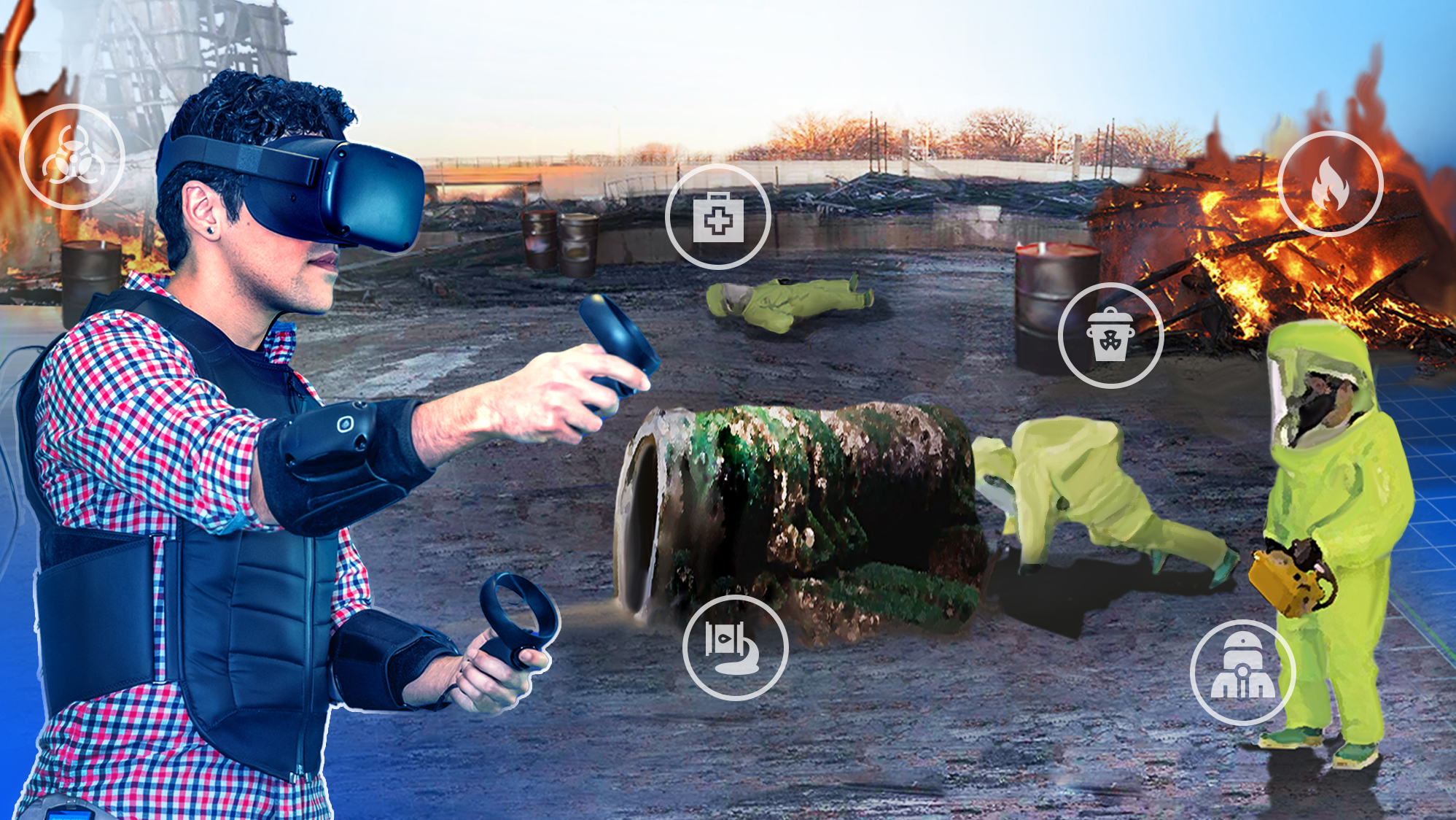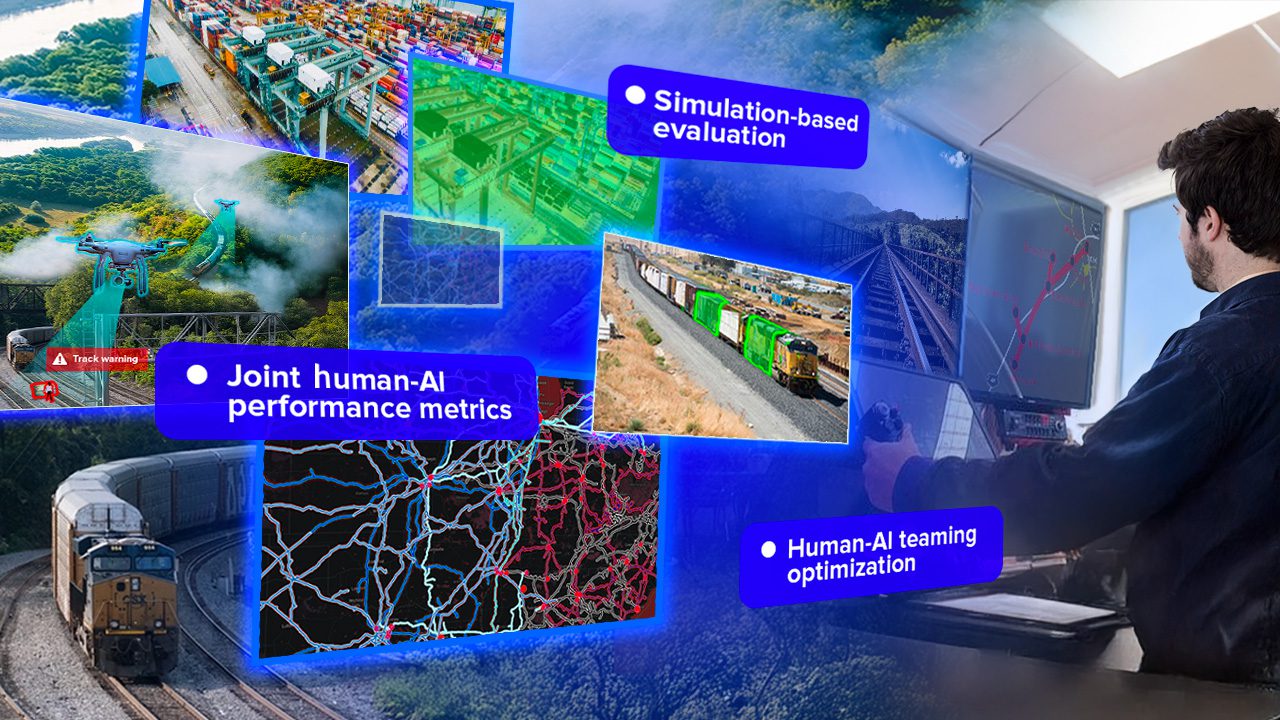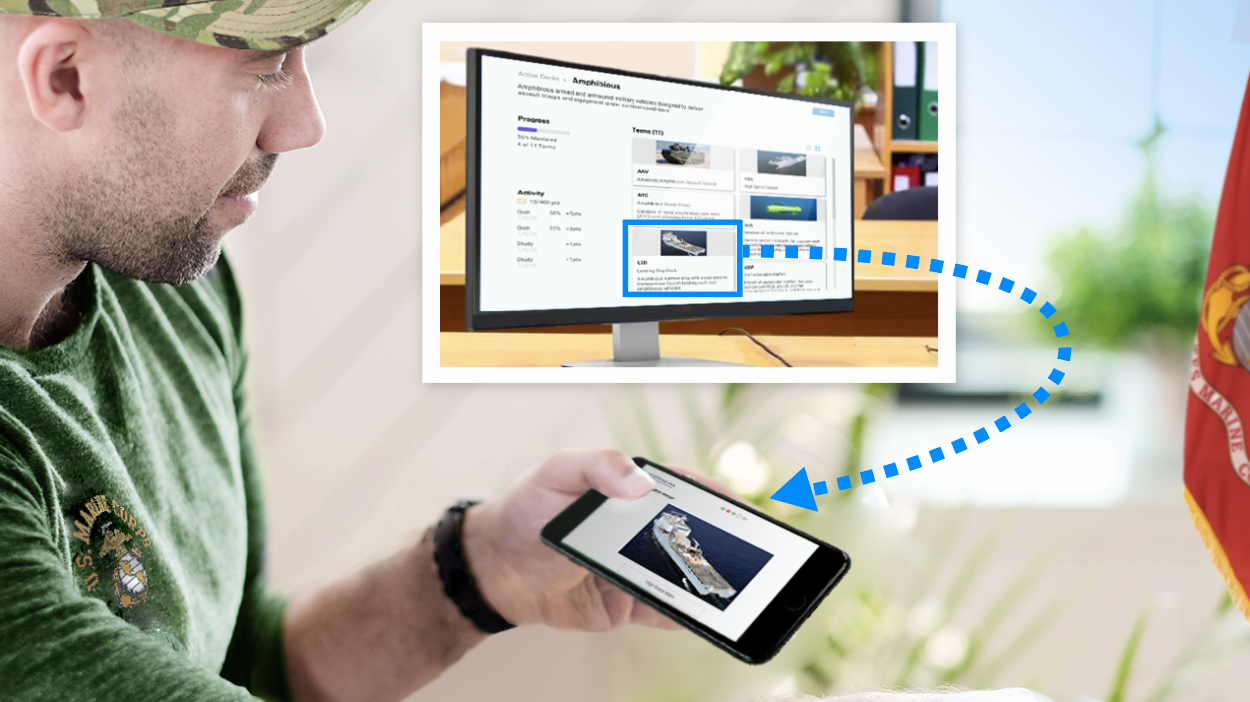Charles River Analytics was awarded an additional Small Business Innovation Research (SBIR) grant from the National Institute of Environmental Health Sciences (NIEHS) to create VR modules that enhance training for hazardous waste operations and emergency response (HAZWOPER). Following a successful Phase I and supplemental COVID-19 grant, Charles River continues to build VR content to bridge the gap between classroom learning and field exercises.
Firefighters, emergency responders, and environmental and industrial workers may encounter hazardous materials. Exposure to these materials causes health and safety risks such as chemical burns, illnesses, fires, and explosions.
Employees who are required to take HAZWOPER training first attend classroom lectures with slideshow presentations and then do field training exercises. If classroom sessions aren’t engaging or comprehensive, students can be ill-prepared for field training exercises, wasting valuable resources including trainer time and equipment. Furthermore, students may not retain the information after earning certification, which puts themselves and others in danger when encountering hazardous environments later.
To enhance HAZWOPER training and make it as engaging and effective as possible, Charles River is creating an Immersive Modular Preparedness Intelligent Tutor (IMPRINT). The training system includes VR modules in which students can practice the steps to take in hazardous scenarios. Charles River software engineers are collaborating with the New England Consortium Health and Safety Training Center via the University of Massachusetts Lowell and the Boston Fire Department to design three-dimensional scenes that match existing course content.
“We’re giving trainers the tools they need to teach people how to safely do jobs that keep our society going during emergencies,” said Dan Duggan, software engineer, extended reality (XR) development lead at Charles River Analytics, and Co-Principal Investigator on the IMPRINT effort.
The team proved the concept in previous phases and built relationships with key partners. In Phase II, the XR team is building immersive tabletop simulations using the Meta Quest 2 VR headset. They are creating narratives, sketching maps, selecting 3D assets, and developing game mechanics to complement existing course material and to match HAZWOPER training objectives. For example, they are designing a 3D scene in which trainees determine what to do when they encounter a puddle with a live wire.
Trainees can use IMPRINT to apply complex, dangerous procedures in a safe, controlled virtual environment. A library of VR case studies will replace standard paper and PowerPoint scenario-based activities. IMPRINT’s immersive tabletop simulations will better prepare trainees for both their assessments and responses to real-world safety hazards.
Contact us to learn more about IMPRINT and our other adaptive training and humanitarian and environmental capabilities.
Related Articles
Scientists Studying How to Use Virtual Reality to Train Responders for Post-Pandemic Disasters
Charles River Analytics Develops an Extended Reality Toolkit for Care Under Fire Training
Charles River Analytics Launches an Open-Source SDK that Solves Key XR Challenges
Research reported in this publication was supported by the National Institute of Environmental Health Sciences of the National Institutes of Health under Award Number 2R44ES031818. The content is solely the responsibility of the authors and does not necessarily represent the official views of the National Institutes of Health.





